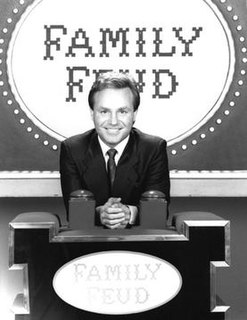A Quote by Ray Combs
Never get into an argument with a schizophrenic person and say, 'Who do you think you are?'
Related Quotes
We say that one gets cancer, or a cold, or kidney disease. One would
never think to say that one is cancer. But we say that one is depressed,
or bipolar, or schizophrenic. A disease of the body is a condition. But
a disease of the mind, we think, is a state of being. We no longer
believe, as we did 250 years ago, that the mentally ill are animals,
but we are not yet ready to grant that they are fully human either.
I was asking if unwinding kills you, or if it leaves you alive somehow. C'mon—it's not like we haven't thought about it." (...) What do you think, Connor?" asks Hayden. "What happens to your soul when you get unwound?" Who says I even got one?" For the sake of argument, let's say you do." Who says I want an argument?
Schizophrenia --its nature, etiology, and the kind of therapy to use for it--remains one of the most puzzling of the mental illnesses. The theory of schizophrenia presented here is based on communications analysis, and specifically on the Theory of Logical Types. From this theory and from observations of schizophrenic patients is derived a description, and the necessary conditions for, a situation called the "double bind"--a situation in which no matter what a person does, he "can't win." It is hypothesized that a person caught in the double bind may develop schizophrenic symptoms
People say, "I have heart disease," not "I am heart disease." Somehow the presumption of a person's individuality is not compromised by those diagnostic labels. All the labels tell us is that the person has a specific challenge with which he or she struggles in a highly diverse life. But call someone "a schizophrenic" or "a borderline" and the shorthand has a way of closing the chapter on the person. It reduces a multifaceted human being to a diagnosis and lulls us into a false sense that those words tell us who the person is, rather than only telling us how the person suffers.
































